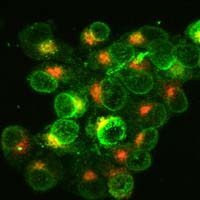Mesothelioma Study Could Improve Immunotherapy

Scientists have made an important discovery about a component of the immune system that could have an impact on mesothelioma, one of the rarest and most aggressive cancers.
Although mesothelioma is rare, it claims about 2,500 lives in the U.S. annually. Scientists around the globe are searching for a method to keep this cancer from spreading across the membranes that surround the lungs or line the abdomen. As mesothelioma tumors on these membranes grow larger, the likelihood that the cancer will spread to the lungs or other internal organs increases.
The immune system is designed to help stop the spread of invaders or out-of-control cancer cells. One immune cell, the Natural Killer or NK cell, is known to exert an anti-tumor effect both in the lab and inside living subjects. While NK cells do kill individual cancer cells, once a solid tumor begins to grow, a change appears to take place inside the NK cells that makes them much less effective. In an effort to identify how and when that change takes place – and what might be done about it – a team of laboratory scientists in Italy isolated NK cells taken from the lung fluid (pleural effusions) of patients with metastatic mesothelioma, lung, breast, uterine, colon, gastric or bladder cancer.
Studying the cell samples, the team found that the NK cells in the pleural effusions of cancer patients were still functioning normally and were exerting their cancer-killing power. They expressed normal levels of the inhibitory receptors responsible for stopping the spread of mesothelioma. In fact, researchers say that when these NK cells were exposed to interleukin-2 (IL-2), a signaling protein that regulates white blood cell activity, they “acquired a potent cytolytic activity against both allogeneic and autologous tumor cells.” In other words, the NK cells were doing their job.
The finding is potential important to immunotherapy researchers who are trying to develop an effective method for pitting a patient’s own immune system against his mesothelioma. The fact that NK cells in the pleural effusions of mesothelioma patients are not functionally impaired means there may be a way to artificially ‘reactivate’ them to attack mesothelioma tumor cells. The research team concludes that the news “may offer important clues for the development of novel approaches in tumor immunotherapy.”
Source:





